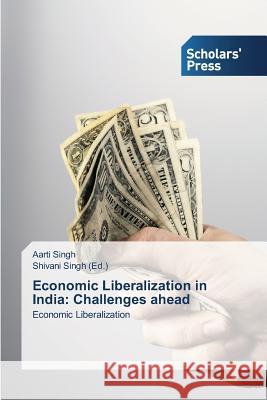Economic Liberalization in India: Challenges ahead » książka
Economic Liberalization in India: Challenges ahead
ISBN-13: 9783639712162 / Angielski / Miękka / 2014 / 52 str.
"Liberalization" is not just some policy option that the government chooses, like choosing a particular tariff rate or a particular price policy. It is a major episode in the history of class struggle. It corresponds to a new phase of world capitalism with new class configurations. To discuss the effects of "liberalization" without taking into account this entire class context, in terms exclusively of textbook propositions about the benefits of trade is both naive and banal. The thrust of the present wave of "liberalization" which is sweeping the entire third world is three-fold: to shift the balance away from the workers, peasants, petty producers and even small capitalists towards large capitalists both domestic and foreign; to shift the balance away from domestic capital in general towards foreign capital; and to shift the balance away from capital-in-production towards capital-as-finance. To be sure, different countries are at different stages in this process, which is carried forward by a combination of forces driven by international finance capital whose chief spokesmen are the Bretton Woods institutions.











